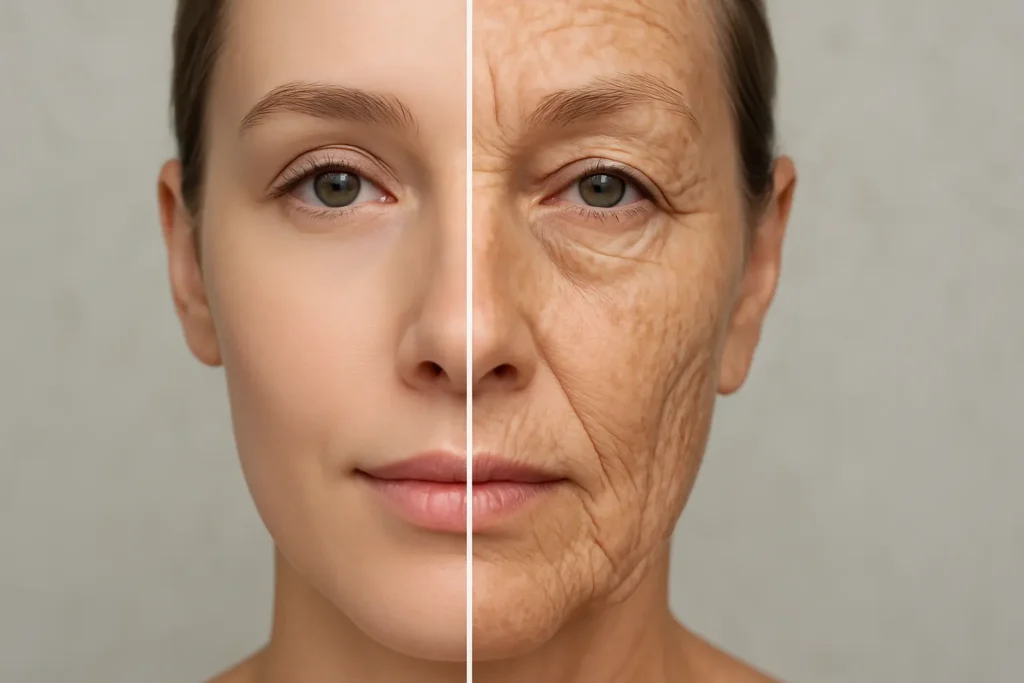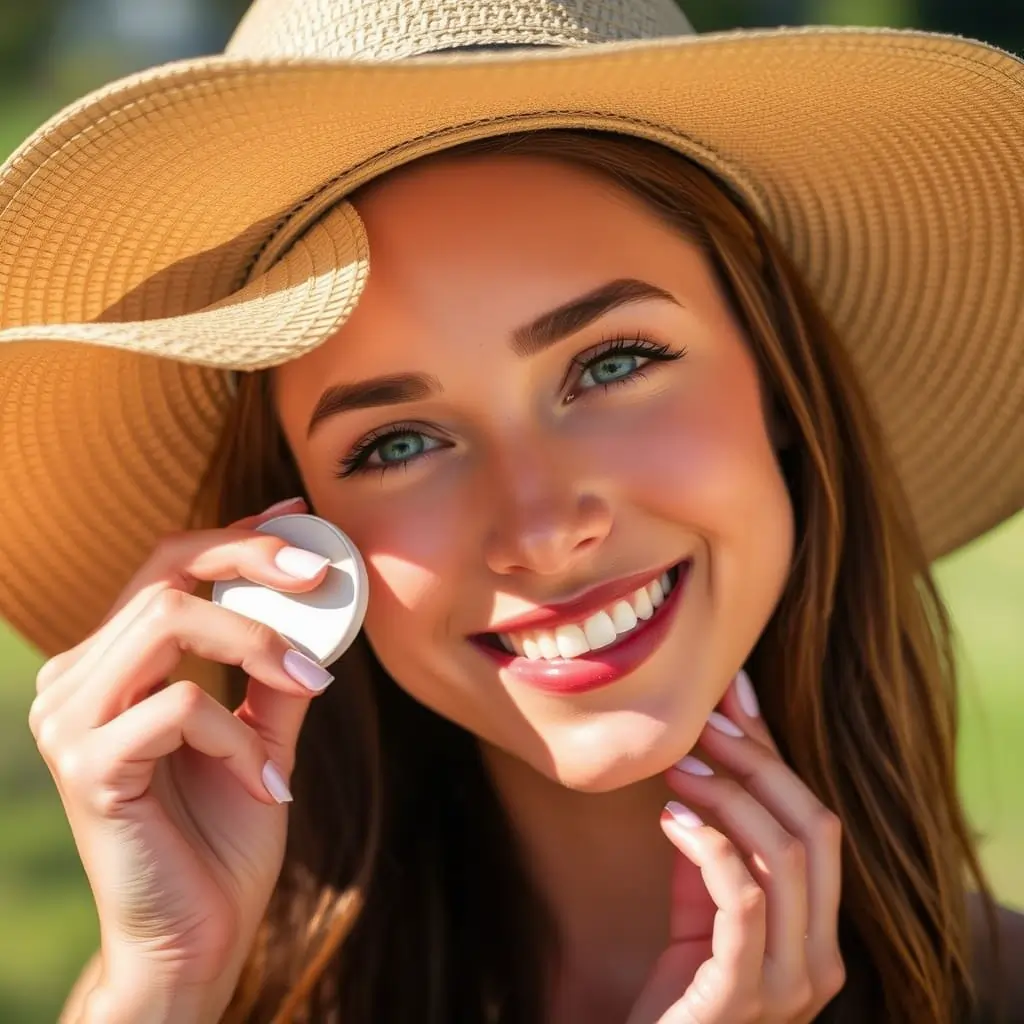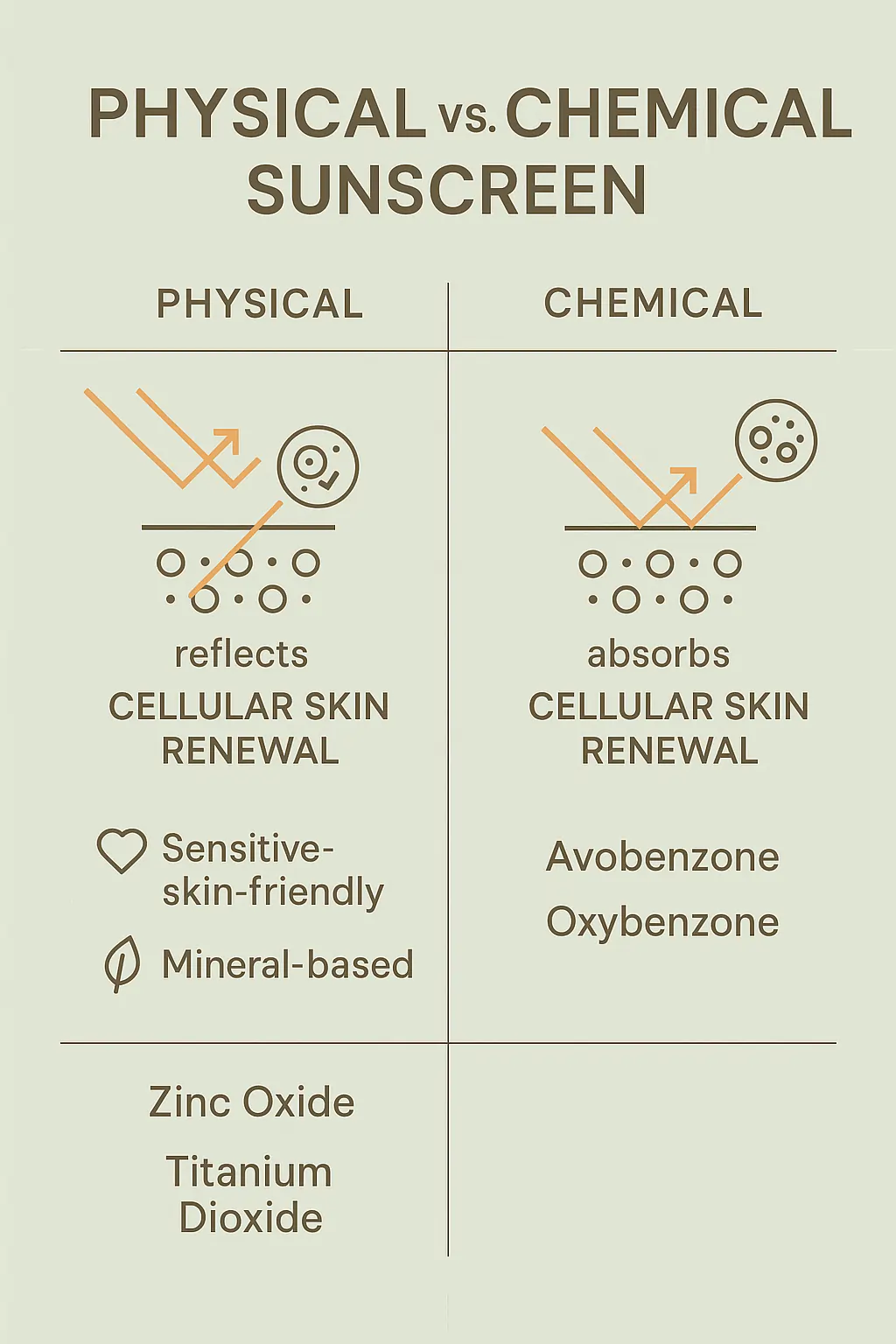A Guide to Sun Protection & Anti-Aging: Cruelty-Free Sunscreens for Oily Skin
Looking for the secret to lasting radiance and truly healthy skin? As a skincare professional, beauty blogger, and cruelty-free skincare advocate with over 18 years of experience, I’m thrilled to share insider tips and science-backed strategies that will keep your oily skin clear, youthful, and protected.
Effective sun protection is especially crucial for oily skin because UV exposure can break down collagen, worsen breakouts, and accelerate aging. In this guide, I’ll help you choose the best mineral filters for broad-spectrum defense and establish a simple reapplication routine to keep your skin protected all day.
Here’s what you’ll discover:
-
Mineral filters & broad-spectrum defense: How to pick sunscreens with zinc oxide or titanium dioxide for powerful UVA/UVB protection.
-
Reapplication schedule: Tips to keep your sunscreen working during busy days.
-
Cruelty-free sunscreens for oily skin: Top recommendations that control shine without clogging pores.
-
Collagen-boosting foods & hyaluronic acid-rich diet: The best nutrients and foods to support your skin’s structure and hydration from within.
-
Antioxidant-rich ingredients: How vitamin C and niacinamide help neutralize free radicals and brighten oily, aging skin.
For an extra layer of defense and rejuvenation, we’ll also cover how pairing your sunscreen with a quality cruelty-free anti-aging serum can give your skin a refreshing boost. Ready to learn how to shield your skin from UV damage while embracing natural remedies and ethical skincare practices to slow aging?
Let’s get started!
Why Sun Protection Is Critical for Oily Skin?
Let’s dive into why sun protection is non-negotiable.
What Are the Hidden Dangers of Prolonged Sun Exposure?
Prolonged sun exposure goes beyond sunburns. UV radiation breaks down collagen, damages skin cells at the DNA level, and significantly increases the risk of skin cancer. It also causes stubborn dark spots, hyperpigmentation, and premature aging, like wrinkles and sagging.
Even oily skin offers no protection against these serious, long-term effects from sun damage.
Maintaining skin barrier protection through ceramides and occlusives can help minimize UV-induced water loss and inflammation.
Quick Tip: UV rays penetrate clouds and windows! Apply sunscreen daily, even on overcast days or when indoors near windows.
Pro Tip: Besides SPF, consider using a blue light protection cream when spending hours in front of screens.
Key Risks of Sun Overexposure
- Premature aging (wrinkles, sunspots)
- Weakened skin barrier (dryness + sensitivity)
- Increased acne breakouts (due to inflammation)
- Elevated risk of melanoma and other skin cancers
Pro Tip: Pair sunscreen with antioxidant-rich skincare (e.g., vitamin C serums) to neutralize free radicals caused by UV exposure.
How UV Rays Accelerate Aging and Damage Skin?
UV rays target collagen and elastin, the proteins that keep skin firm. This breakdown causes wrinkles, sagging, and loss of skin elasticity over time. UV radiation also damages DNA in skin cells, leading to dark spots, uneven texture, and increased risk of skin cancer.
For oily skin types, managing enlarged pores and sagging becomes more complicated.
I’ve seen clients with oily skin skip SPF, only to regret it when fine lines appeared in their late 20s. One of the top skincare mistakes to avoid is assuming your natural oils are enough protection.
Did you know that 90% of visible aging is caused by sun exposure? (Source: Skin Cancer Foundation).
Facts to Know:
- Sunlight triggers free radicals, accelerating cell death.
- UV radiation reduces hyaluronic acid production.
- Oily skin’s sebum can oxidize in sunlight, causing breakouts.
UV Damage Effects
- Collagen breakdown → Wrinkles and loss of elasticity.
- Melanin overproduction → Dark spots and uneven tone.
- Oxidative stress → Inflammation and acne flare-ups.
What Are The Natural Anti-Aging Remedies That Complement Sun Protection?
Sunscreen alone isn’t enough for anti-aging. You have to combine it with collagen-boosting foods like berries, leafy greens, and omega-3-rich fish, use antioxidant-rich herbs like green tea and turmeric, and add vitamin C serums and retinol products to your routine to get the maximum benefits.
This internal and external approach provides better protection and skin repair than sunscreen alone. In colder months, remember your winter skincare essentials: heavier ceramide creams, nourishing oils, and indoor humidifiers to support barrier health.
Collagen-Boosting Foods for Radiant Skin
Your diet plays a key role in your skin health! Foods rich in vitamin C, antioxidants, and omega-3 fatty acids support collagen production and hydration. After 18 years in skincare, I’ve seen clients significantly reduce fine lines by regularly consuming bone broth and leafy greens in their daily meals.
Skin Nutrition Guide
This comprehensive post provides detailed information on which fruits are better for your skin:
What Are the Best Fruits for Glowing Skin in 2026?
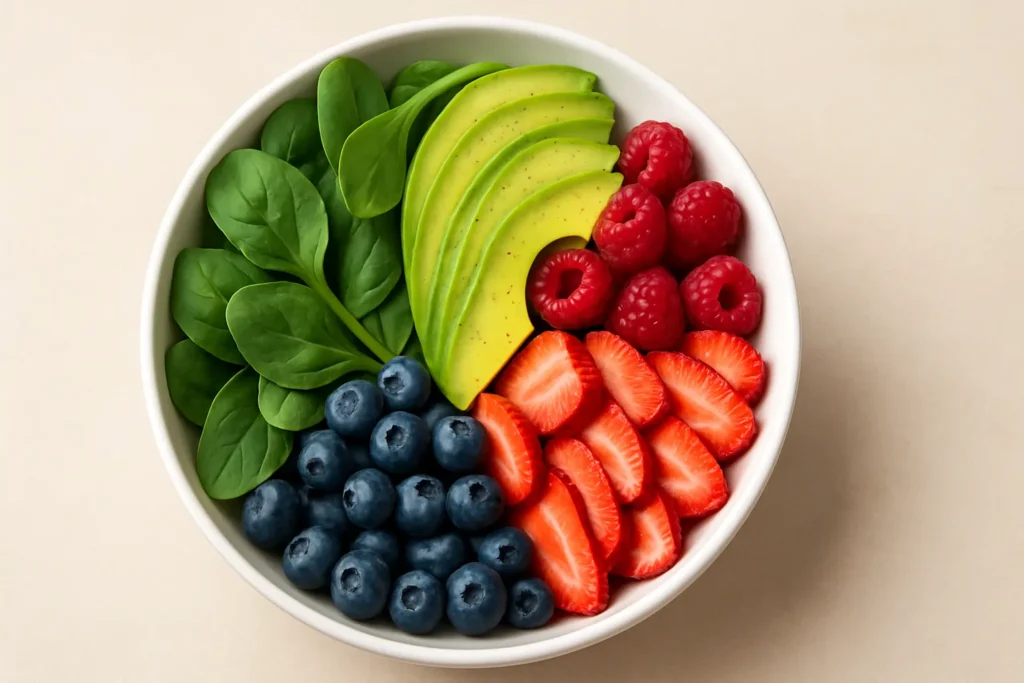
What Are The Top Collagen-Boosting Foods?
These nutrient-rich foods naturally support collagen production and help maintain youthful, healthy skin.
- Bone broth (rich in glycine and proline)
- Citrus fruits (vitamin C for collagen synthesis)
- Leafy greens (chlorophyll for skin repair)
- Berries (antioxidants to fight free radicals)
- Avocados (healthy fats for skin elasticity)
Hydro-Boosting Bites:
Soy-based foods (tofu, tempeh) and root veggies (sweet potatoes) contain hyaluronic acid precursors. Pair them with vitamin C-rich foods (like bell peppers) for better absorption.
Quick Tip: Hyaluronic acid is naturally found in foods like soy products and root vegetables. Pair HA-rich foods with vitamin C for maximum absorption!
When you’re on the go, buy travel-size skincare versions of your serums and moisturizers so you don’t skip your routine—and pair them with HA-rich snacks (like edamame) for on-the-fly collagen support.
Herbs and Ingredients to Slow the Aging Process
Powerful Herbs & Ingredients:
- Green tea extract EGCG fights oxidative stress.
- Turmeric (anti-inflammatory curcumin)
- Resveratrol (a polyphenol in grapes/red wine that protects cells)
- Ginseng (boosts circulation and skin repair)
Pro Tip: Brew green tea, then freeze it into ice cubes for instant UV protection when applied topically. Additionally, if you spend hours in front of screens, look for blue-light protection skincare products (serums containing niacinamide or antioxidants).
What Are The DIY Natural Remedies for Crow’s Feet and Firmness?
An aloe vera and rice powder blend is an effective natural remedy for tightening skin and reducing crow’s feet. Mix one tablespoon of rice powder with two tablespoons of aloe vera gel. If you have sensitive & reactive skin, opt for hypoallergenic aloe vera gel or masks.
Apply this mixture under your eyes and around your mouth, leave for 15 minutes, and rinse with lukewarm water. The rice powder exfoliates, while aloe vera soothes and hydrates the skin.
Pro Tip: Combine this mask with facial massage using rosehip oil to stimulate circulation and firmness.
Cruelty-Free Sunscreens Designed to Protect Skin from the Sun
Ethical sun protection doesn’t have to compromise efficacy. Pair your morning SPF with cruelty-free makeup remover wipes at night to ensure full product removal and avoid pore congestion.
Many vegan, non-comedogenic formulas now offer lightweight textures and advanced UV filters. I’ve tested dozens, and the right product can control oil while shielding against UVA/UVB rays. For an extra anti-aging boost, layer on a cruelty-free anti-aging serum before your sunscreen.
What Protects Skin from UV Radiation?
These ingredients shield skin from damage, prevent aging, and maintain a matte finish without clogging pores. Sunscreens with dual-action ingredients are the ones to go:
- Zinc oxide (physical UV blocker + anti-inflammatory)
- Niacinamide (regulates oil + boosts collagen)
- Ferulic acid (stabilizes antioxidants + fights aging)
These powerful ingredients work together to block harmful UV rays while providing additional skincare benefits, such as oil control and anti-aging protection.
Quick Tip: Check labels for “non-comedogenic” and “oil-free” claims to avoid clogged pores.
Oil-Free, Non-Comedogenic Formulas for Oily Skin
For oily skin, I recommend mineral-based formulas with silica or kaolin clay. Brands like ISDIN and BADGER offer lightweight options that absorb quickly. Most of these are also cruelty-free sunscreens for oily skin, so that you can feel good about your environmental and ethical impact.
Pro Tip: Reapply with a powder sunscreen (like Dime Clean Beauty) over makeup to avoid greasiness.
Sun Protection for Face and Body Without Compromise
Protecting your face and body from the sun doesn’t mean sacrificing comfort or style. Whether outdoors all day or commuting, combining physical barriers, antioxidants, and broad-spectrum SPF ensures complete coverage.
When traveling for work or leisure, consider buying travel-size skincare to ensure you never miss a reapplication.
As someone with oily skin, I’ve learned that layering sun protection methods (like hats + sunscreen) keeps my skin safe and shine-free.
How to Protect Your Face from the Sun Without Sunscreen?
Quick tips for sun protection without sunscreen:
- Wear UPF-rated clothing: Hats with wide brims and UV-blocking scarves shield your face from direct rays.
- Use Antioxidant Serums: Vitamin C serums neutralize free radicals caused by UV exposure.
- Seek shade: Avoid peak sun hours (10 am–4 pm) to reduce UV stress.
- Apply mineral-based powders: Products like Dime Clean Beauty’s powder SPF absorb oil and provide UV protection.
Physical vs. Chemical Sunscreens: Which Is Safer?
Pro Tip: Hybrid formulas (combining both types) offer balanced protection. Constantly reapply every 2 hours!
Quick Tip: No sun exposure is 100% safe, but SPF + shade reduces risks.
Myths About Sun Exposure and Natural Skincare
Sunlight isn’t inherently evil, but myths about its benefits can be dangerous. Many believe sun exposure clears acne or builds immunity, but science disagrees. I’ve personally seen my clients’ acne worsen after “sun therapy”—UV radiation inflames skin and damages collagen.
Let’s bust these myths.
Debunking Common Sun Safety Misconceptions
Myth 1: “Sunlight Clears Acne”
- Fact: UV rays temporarily dry skin but later trigger oil overproduction.
Myth 2: “You Don’t Need SPF on Cloudy Days”
- Fact: 80% of UV rays penetrate clouds. Apply sunscreen daily.
Myth 3: “Only Fair Skin Needs Sunscreen”
- Fact: All skin tones are vulnerable to sun damage and skin cancer.
Quick Tip: Layer sunscreen under makeup and reapply with powder SPF for easy touch-ups.
Can Natural Remedies Replace Sunscreen?
Natural remedies (like aloe vera or coconut oil) soothe skin but cannot replace sunscreen. They lack UV-blocking power. However:
- Antioxidants like green tea and vitamin C combat free radicals, shielding skin from oxidative stress. To read more about vitamin C’s role as an antioxidant, read our full guide here.
- DIY masks, such as rice powder mixed with aloe, tighten and brighten but offer no UV protection. Read how DIY or homemade masks are the best ways to protect from sun exposure here.
- UPF-rated clothing and wide-brim hats create effective physical barriers against sun exposure.
Practical Tips for Daily Sun Protection and Skin Health
Sun protection isn’t just about slathering on SPF—it’s a lifestyle. These strategies, from reapplication techniques to storage hacks, keep your skin safe year-round. After years of trial and error, here’s what works best.
How to Apply Sunscreen Effectively for Oily Skin?
Step-by-Step Application Guide:
- Cleanse and moisturize with oil-free products.
- Apply a pea-sized amount of sunscreen in upward strokes (avoid patting).
- Wait 3–5 minutes before applying makeup. One of the biggest skincare mistakes to avoid is rushing this step and diluting your SPF.
- Reapply over makeup using powder SPF or a setting spray with SPF.
Pro Tip: Use a beauty sponge to blend powder SPF over foundation without smudging.
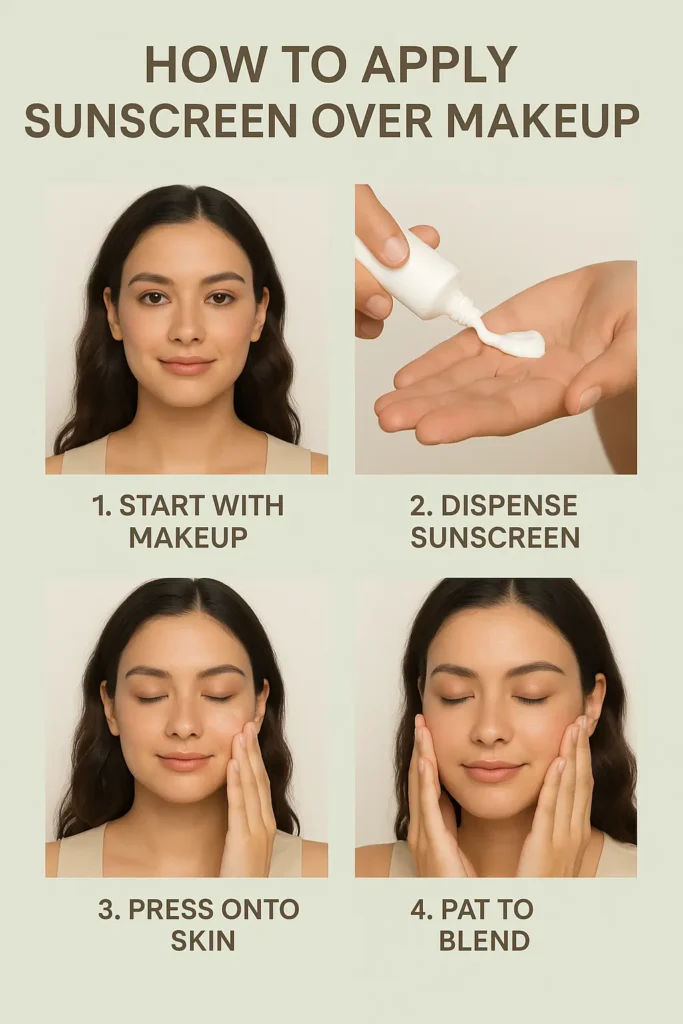
Storing and Replacing Sunscreen for Maximum Efficacy
Storage Tips
- Keep sunscreen below 75°F (avoid hot cars or sunny windowsills).
- Secure caps tightly to prevent oxidation.
Signs to Replace Sunscreen
- Separation that won’t remix (e.g., watery texture).
- Unusual odor or color change.
- Expired (most SPF lasts 1–3 years).
Quick Tip: Write the purchase date on your sunscreen bottle to track shelf life.
The Best Cruelty-Free Sunscreens of 2026 for Oily Skin
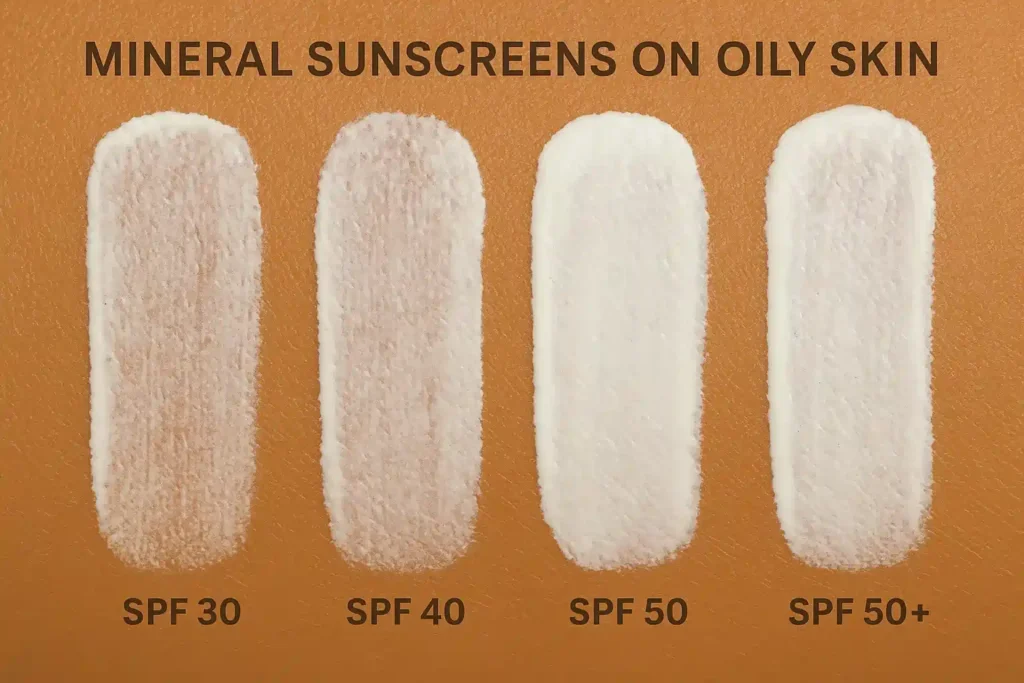
Here are my top picks for 2026.
Top 5 Oil-Free Mineral Sunscreens with Antioxidants
1. ISDIN Fusion Water
- Lightweight, fast-absorbing with zinc oxide + vitamin E.
2. BADGER Clear Zinc SPF 40
- Non-greasy, reef-safe, and PETA-certified.
3. Neutrogena Sheer Zinc Dry-Touch
- Oil-free mineral SPF with a matte finish.
4. Dime Clean Beauty Powder SPF
- Perfect for reapplication over makeup.
5. EltaMD UV Clear Broad-Spectrum
- Niacinamide + hyaluronic acid for acne-prone skin.
Quick Tip: Look for “non-comedogenic” labels to avoid clogged pores.
Powder and Tinted SPFs for Touch-Ups Over Makeup
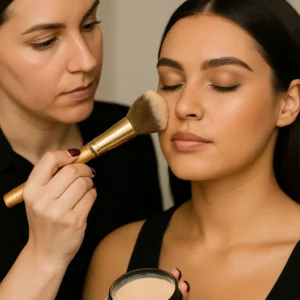 Best Powder Sunscreens:
Best Powder Sunscreens:
- Dime Clean Beauty SPF 30: Blurs lines and absorbs oil.
- Colorescience Sunforgettable Brush: Portable and mess-free.
Top Tinted SPFs:
- COOLA Mineral Tinted Stick: Sheer coverage + UV protection.
- Supergoop! Unseen Sunscreen: Lightweight with a hint of color.
Pro Tip: Tap powder SPF into skin (don’t sweep) for even coverage.
Final Thoughts: A Guide to Sun Protection & Anti-Aging
FAQs: A Guide To Sun Protection & Anti-Aging
What Is The Best Protection From The Sun?
The best protection from the sun is a combination of broad-spectrum SPF 30+ sunscreen, UPF clothing, wide-brimmed hats, and seeking shade during peak hours (10 AM–4 PM). Add an antioxidant serum, like vitamin C, for extra defense against free radicals. This multi-layered approach effectively prevents burns, aging, and cancer.
What Is The Sun Protection?
Sun protection refers to measures that shield the skin from harmful UV rays, including sunscreen, protective clothing, hats, and seeking shade. Broad-spectrum formulas block UVA (aging) and UVB (burning) rays. Consistent protection reduces premature aging, hyperpigmentation, and the risk of skin cancer. Incorporate daily for optimal long-term skin health and radiance.
Which Is Better Spf 30 Or Spf 50?
SPF 50 is slightly better than SPF 30 for extended exposure, blocking 98% of UVB rays compared to 97% with SPF 30. However, reapplication every 2 hours matters more than the number of applications. Choose broad-spectrum for UVA protection. SPF 50 suits fair or sensitive skin; both work well when used properly.
What Are The 5 Sun Protection Measures?
The 5 key sun protection measures are: apply broad-spectrum SPF 30+ sunscreen, wear UPF-rated clothing and hats, seek shade during peak hours, use UV-blocking sunglasses, and limit outdoor time between 10 AM–4 PM. These prevent burns, aging, and cancer while maintaining healthy skin year-round.
What Does “Cruelty-Free Sunscreen” Really Mean?
Cruelty-free sunscreen means no animal testing occurred during development or production. Certifications like Leaping Bunny or PETA verify claims. These products use ethical alternatives for safety testing. Opt for them to support humane practices while protecting skin from UV damage with mineral filters like zinc oxide.
How Can I Protect My Skin From The Sun Without Sunscreen?
Protect skin without sunscreen by wearing UPF 50+ clothing, wide-brimmed hats, and UV-blocking sunglasses. Seek shade, especially 10 AM–4 PM, and limit exposure. Use a vitamin C serum to support antioxidant defense against free radicals. Stay hydrated and avoid reflective surfaces, such as water or snow, for added safety.
What Are The Best Herbs For Anti-Aging And Collagen Production?
Best herbs for anti-aging and collagen include green tea for antioxidant protection, turmeric for reducing inflammation, resveratrol for cellular repair, and ginseng for boosting elasticity. These natural ingredients stimulate collagen synthesis and fight free radicals. Incorporate through teas, supplements, or skincare for firmer, youthful skin over time.
Does Hyaluronic Acid Occur In Natural Food Sources?
Hyaluronic acid doesn’t occur directly in foods but is supported by sources like soy products (tofu, edamame) and root vegetables (sweet potatoes, carrots) that promote its production. These provide building blocks for hydration and elasticity. Bone broth also boosts levels naturally for plumper, more youthful skin.
Is Any Sun Exposure Safe For Oily Skin?
Limited sun exposure (10–15 minutes) in early morning or late evening is safe for oily skin, providing vitamin D without triggering excess sebum or breakouts. Always follow with mattifying SPF. Avoid midday sun to prevent inflammation. This balanced approach maintains skin health while minimizing oil-related concerns.
How Do I Choose A Vegan Sunscreen That Prevents Skin Cancer?
Choose vegan sunscreen certified by Vegan Society or PETA, with mineral filters like zinc oxide for broad-spectrum SPF 30+. Avoid animal-derived ingredients like beeswax. Look for reef-safe, non-nano formulas. These protect against UVA/UVB rays, reducing cancer risk while being ethical and gentle on sensitive skin.
📋 Medical Disclaimer
For Educational Purposes Only: This article is written by Kousar Subhan, a Medical Writer and Researcher, and is intended for informational and educational purposes only. The content provided is based on scientific research, peer-reviewed studies, and dermatological literature available as of December 2025.
Not Medical Advice: The information in this article does not constitute medical advice, diagnosis, or treatment recommendations. It should not be used as a substitute for professional medical consultation, diagnosis, or treatment from a board-certified dermatologist or qualified healthcare provider.
Individual Results May Vary: Skin conditions, including hyperpigmentation, melasma, and UV-induced pigmentation, vary significantly between individuals based on genetics, skin type, hormonal factors, and environmental exposure.
Consult Your Healthcare Provider: Before starting any new skincare regimen, especially if you are pregnant, breastfeeding, have diagnosed skin conditions, are taking medications, have sensitive skin, or are undergoing dermatological treatments.
Product Safety: Always perform a patch test before using new skincare products. Discontinue use and consult a healthcare professional if you experience irritation or adverse reactions.


